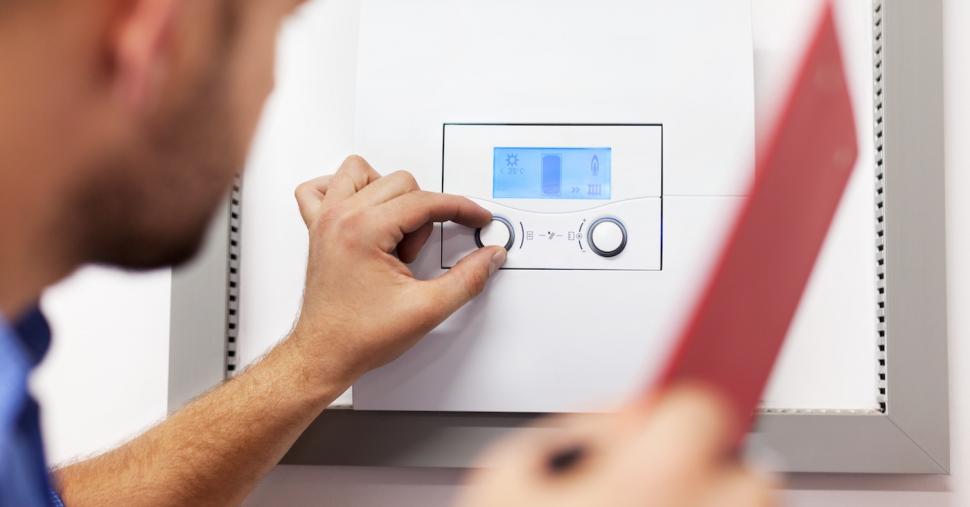The UK is deeply embroiled in a steamy love affair. Leaving behind our infatuation with cranky old fossil fuel-driven boilers, we’re striding off into the sunset with our eco-friendly, government-subsidised heat pumps. But is this really a match made in heaven? Or are the cracks already showing?
It is an inarguable fact that something needs to change. Our existing gas-guzzling carbon-creating fossil fuel boilers have no place in the future of our planet and, as of 2025, new-build homes won’t get even a cursory glance at the boilers of old—they will be fitted with heat pumps at the point of development. Older homes can keep hold of them until 2035 and beyond; no new fossil fuel boilers will be installed beyond this date, but if it ain’t broke, it can stay (until it claps out).
It all sounds just wonderful, doesn’t it? Our homes will be warm and not at the cost of the health of the planet. But those rose-tinted glasses may have blurred the edges; here’s what we’re missing. Firstly, affordability. The cost of a heat pump and its installation is roughly double that of its gas counterpart, but that’s ok if the Government is footing the excess, right? Not so if you’re not one of the chosen few; there is a limit to their green generosity with grants capped at 30,000 households a year for three years. With 27.8 million households in the UK, this is a crudely calculated shortfall of 99.68%. And forget it if your house has poor insulation, as in many older properties. An air source heat pump simply cannot sufficiently heat a home that doesn’t have adequate insulation. Having been spoilt since the invention of the first domestic gas boiler in 1868 (thanks, Benjamin Maughan)[1], our expectations, and household temperatures, are high, and it’s unlikely we will happily accept inconsistent heat, paying out what could be over £10,000 for a heating system that doesn’t keep us warm.
The alternative is forking out even more money to insulate our ageing homes, the only way the shiny new system will work in poorly insulated properties. But, let’s disregard our own comfort and costs for a moment, instead considering the eco-friendly benefits of the air source heat pump. Installing a heat pump could cut a household’s carbon emissions by over 23 tonnes over ten years. A great incentive, but that cost could be too much to bear. Here’s one alternative.
A hydrogen boiler. Lovely, clean hydrogen, coursing through the existing gas supply infrastructure, heating our homes in the manner in which we have become accustomed. We’ve spoken of the virtues of hydrogen before, specifically in relation to Arnold Schwarzenegger’s Hydrogen Highway (you’ll find it here[2]), and we are ready for the switch, albeit in stages, seeing as current boilers can take 20% hydrogen with no modifications.[3] It’s not ideal, but this blend is the carbon reduction equivalent of 2.5 million fewer cars on the road. It also buys a little time for the production of 100% hydrogen boilers, which come at a much lower cost to the consumer, comparable to the cost of a new standard boiler.
Why are we so stuck on installing clunky, expensive, often inefficient heat pumps into our homes when we could make a simple switch to a different boiler? The devil is in the detail of the hydrogen-extraction technique. Until companies and the Government invest into researching an efficient way of producing blue or green hydrogen[4], carbon-heavy processes will be used, which definitely defeat the aim. Did someone mention a hybrid heat pump, which provides heat until it can’t, at which point a boiler kicks in? As it stands, these are generally 85% heat pump, 15% gas boiler, but it isn’t too much of a leap to consider a hydrogen boiler making up the 15%.
A cleaner option is that of a fuel cell, which converts hydrogen into electricity, water and, crucially for this conversation, heat. What’s not to love? A Combined Heat and Power (CHP) system is highly efficient, although still reliant on further investment in order to make it an affordable option for households. An argument against this is the utilisation of water to produce far greater levels of hydrogen than we have ever needed before. Producing this amount of hydrogen could add a new pressure on the planet—keeping us hydrated and warm is a mammoth task, and we really don’t want to choose between the two. Yet another alternative is to use seawater, with several studies[5]hailing the discovery as a ‘why haven’t we thought of this before?’ moment. It begs the question why pockets aren’t dug into a little deeper to fund infrastructure that could provide the UK public with a reliable, viable, affordable and environmentally sound way of heating their homes.
PA Hilton’s Energy Study Module is designed by engineers for engineers. Energy study is a fundamental learning aspect for both first and second-year engineering students. Our energy study units allow the study of difficult principles, enabling delivery of learning in a clear, comprehensive and practical way, increasing student participation and satisfaction.
[1] https://www.homeserve.com/uk/living/blog/a-brief-history-of-boilers/
[2] https://www.p-a-hilton.co.uk/news/did-arnie-have-answer-all-along
[3] https://www.keele.ac.uk/sustainable-futures/ourchallengethemes/providingcleanenergyreducingcarbonemissions/hydeploy/
[4] https://www.nationalgrid.com/stories/energy-explained/hydrogen-colour-spectrum
[5] https://www.chemistryworld.com/news/seawater-splitting-system-could-scale-up-renewable-hydrogen-production/4013332.article
https://www.pnas.org/content/116/14/6624
